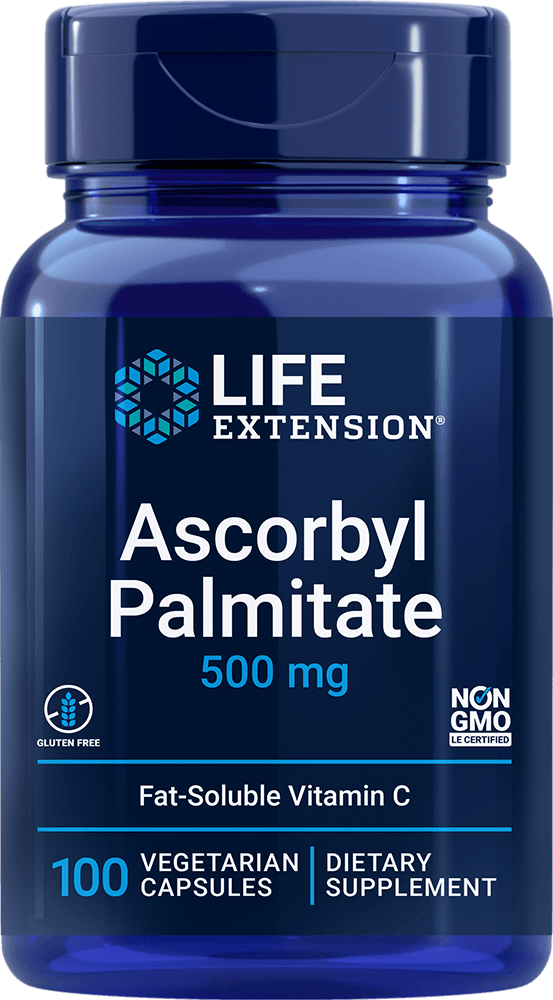Ascorbyl Palmitate


There are numerous potential health advantages of ascorbyl palmitate.
Vitamin C is a crucial nutrient that is involved in a variety of bodily functions, such as the production of collagen, iron absorption, and immune system maintenance.
Ascorbyl palmitate, a fat-soluble vitamin C form, may be more readily absorbed by the body than other vitamin C forms. This suggests that it might be more successful at increasing the body's levels of vitamin C.
Due to its antioxidant properties, ascorbyl palmitate can aid in preventing cell deterioration brought on by free radicals. Free radicals are inherently unstable molecules that can cause cell damage and contribute to the emergence of diseases like cancer and heart disease.
Additionally, ascorbyl palmitate might aid in both the skin's appearance improvement and damage prevention. This is accomplished by preventing the development of wrinkles and age spots.
When taken as directed, ascorbyl palmitate is generally regarded as safe. However, high doses of vitamin C can cause side effects like nausea, vomiting, and diarrhea.
It's crucial to take ascorbyl palmitate as directed if you're taking it as a dietary supplement. Before taking ascorbyl palmitate, you should also discuss with your doctor any medical conditions you may have, whether you are pregnant, breastfeeding, or not.
For adults, 250 mg of ascorbyl palmitate per day is advised. To achieve the desired effects, higher doses might be needed.
Some medications, including blood thinners and cholesterol-lowering statins, may interact with ascorbyl palmitate. It is crucial to consult your doctor before taking ascorbyl palmitate if you are currently taking any medications.
The liver quickly breaks down ascorbyl palmitate after it is quickly absorbed from the gastrointestinal tract.
Half-Life
Ascorbyl palmitate has a half-life of around two hours.
Metabolism
The liver breaks down ascorbyl palmitate into ascorbic acid, which is then eliminated in the urine.
Ascorbic acid, sodium ascorbate, and calcium ascorbate are a few different vitamin C substitutes. These water-soluble vitamin C forms have various rates of absorption.
The most prevalent type of vitamin C is ascorbic acid, which can be found in a variety of fruits and vegetables. Additionally, it is offered as a supplement.
A common dietary supplement is sodium ascorbate, which is an ascorbic acid salt. It is believed to be more easily absorbed than ascorbic acid and less likely to have adverse effects on the digestive system.
Ascorbic acid and calcium are combined to form calcium ascorbate. It is frequently used as a dietary supplement because ascorbic acid is believed to be less readily absorbed than this substance.
A single vitamin C form is ascorbyl palmitate. There are a variety of substitute forms that some individuals may find more suitable. To make sure you are taking the proper form of vitamin C for you, consult your doctor before beginning any vitamin C supplements.










Plus get the inside scoop on our latest content and updates in our monthly newsletter.